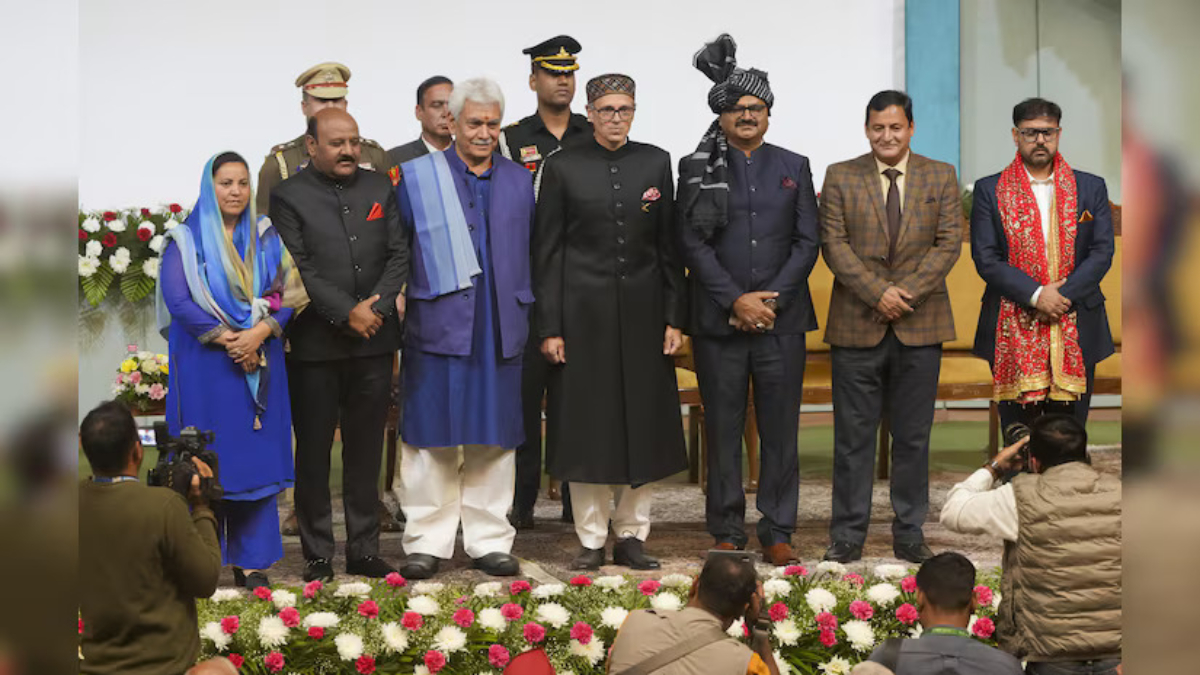Centre’s Overreach Stifles J&K Democracy, Undermining Federal Principles | File Photo
Nowhere is the threat to democracy and federalism in India more imminent than in Jammu & Kashmir. Though elections were recently held in J&K – a full-fledged state until 2019, when it was downgraded to a Union Territory – the arrogance of Prime Minister Narendra Modi’s government and the BJP continues to undermine federal principles in this geopolitically sensitive region bordering Pakistan and China.
Two months after the elections, Chief Minister Omar Abdullah finds himself powerless and uncertain about J&K’s future. Despite a clear mandate for the National Conference-Congress alliance and the BJP’s crushing defeat, governance remains concentrated in the hands of Lieutenant Governor Manoj Sinha, the army, paramilitary forces, and an extensive intelligence apparatus. The situation remains unchanged from the pre-election status quo, with the Centre delaying the formulation of governance rules.
Under the Jammu & Kashmir Reorganisation Act, 2019, the LG holds ultimate authority. Delhi’s deliberate postponement of the Rules of Business framing effectively keeps the Chief Minister’s Office powerless. Though Abdullah took the oath of office on October 16, presided over by none other than LG Sinha, he has yet to exercise any real authority.
On January 3, Abdullah publicly expressed frustration over the delay in finalizing governance rules, which falls under the purview of the Union Home Ministry, led by Amit Shah. However, the PMO and Home Ministry appear indifferent to Abdullah’s appeals, despite his reconciliatory tone and willingness to engage with Delhi. This approach starkly contrasts with the Centre’s actions, including placing him and other prominent Kashmiri leaders under house arrest in the past.
The Centre’s vindictiveness is palpable, creating a bizarre governance scenario. Abdullah cannot chair meetings of 30 government departments, including crucial portfolios like Revenue, Law, and Information. Under the 2019 Act, law and public order remain under the LG’s purview. Sinha’s unilateral actions, such as extending the terms of university vice chancellors and rejecting Abdullah’s choice for Advocate General, highlight the ongoing power struggle. He continues to post and transfer police officers and terminate government employees over alleged anti-national activities, disregarding Abdullah’s campaign promises to restore justice and rebuild trust in the administration.
Despite these challenges, Abdullah has refrained from confrontation, maintaining a measured tone and respectful demeanor towards Modi, Shah, and even Sinha. He portrays them as leaders with good intentions, focusing on dialogue and reconciliation to achieve his primary goal: the restoration of J&K’s statehood.
Abdullah’s strategy includes avoiding legal battles over statehood restoration, which he believes would escalate tensions. He publicly affirms his faith in Modi’s assurance of restoring statehood, quoting the Prime Minister’s promise that it is “guaranteed.” Abdullah remains optimistic, stating that statehood will be restored at the “first opportunity,” even as the Centre shows little urgency to address the issue.
This pacifism starkly contrasts with the BJP’s antagonistic approach toward India’s only Muslim-majority region. A recent proposal by Abdullah to reinstate December 5 as an official holiday, marking Sheikh Abdullah’s birth anniversary, was summarily rejected. The decision disregards Sheikh Abdullah’s pivotal role in the Instrument of Accession with India in 1948. Moreover, Home Minister Shah’s unnecessary remarks about Kashmir during a book release last week further alienated the region.
Abdullah’s patience is being tested as the Centre continues to disregard federal principles and trample on democracy in J&K. His conciliatory efforts aim to rebuild trust, but the persistent hostility from Delhi risks deepening divisions. The erosion of democracy and federalism in Jammu & Kashmir is not just a local crisis but a challenge to India’s constitutional values. Addressing this requires urgent and meaningful engagement to restore the region’s autonomy and ensure the voice of its people is respected.
The author is an independent, Pegasused reporter and commentator on foreign policy and domestic politics
